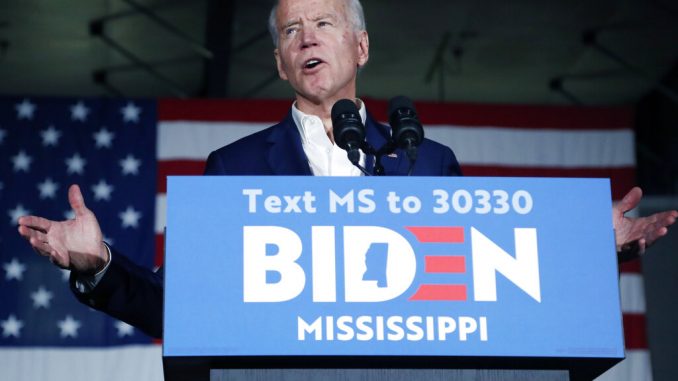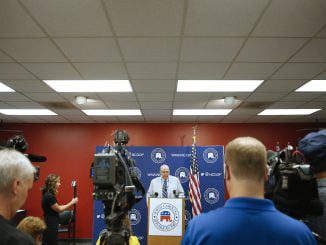
It’s been nice knowing you, Beto and Julian. Bon voyage, Cory and Marianne.
If there’s one thing we’ve learned in this year’s Democratic presidential primary, it’s that names matter. Former Vice President Joe Biden and Vermont Sen. Bernie Sanders, the two frontrunners to win the nomination, had more name recognition coming into the race than the hundreds — it was that many, right? — of other candidates who wanted to face off with President Donald Trump in November’s general election.
The majority of them decided they were better off branding by their first name rather than their last.
Whether it was “TULSI 2020” or “JULIAN castro,” the crowded Democratic field tried to humanize their campaign with logos that either featured their first names prominently or skipped over the candidate’s last name altogether.
As we’ve seen through the years, creating a movement for a politician is all about stoking enthusiasm and mobilizing support. There’s also such a thing as being overexcited and forgetting that two other candidates already rode your last name to the White House. (I’m looking at you, Jeb!).
Just four years ago, in an effort to further forge her own political legacy, Hillary Clinton was more interested moving forward with an “H” and arrow than the last name of a two-term president, husband Bill.
And this isn’t a new phenomenon. You have to go back six decades to find a president who made their case using their first name — and even then, “Ike” was derived from President Dwight D. Eisenhower’s last name rather than his first.
So full marks to the Warrens and Romneys, the Yangs and Doles who valiantly hitched their wagons to their surnames, even if their efforts ended in defeat.
And boo to the Rands and Amys, the Carlys and Petes who could maybe win a class presidency or, perhaps, mayor of a midsized Midwestern city using the name their parents picked rather than the one handed down.
North Carolina’s governor knows if you’re not the Roy in your home state — look west from the Executive Mansion to Chapel Hill for that guy — you’re better off going by Cooper. And his Republican opponent in November realizes it’s better to use a play on words from “Forrest Gump” than simply trying to be “Dan the Man.”
Even someone who was known as “The Donald” — perhaps the best known of that name this side of a Disney duck — seemed to understand his last name trumped (ahem) his first.
So goodbye, Amy. So long, Mike (and a half-billion dollars).
It would have been easy for Biden — and, frankly, on message — to go with “Vote for the Joe you know!”
The electorate already knew both his strengths and weaknesses, along with his reputation as “Amtrak Joe” or the “Uncle-in-Chief.” That’s all fine. However, when it comes to winning the presidency, Biden and his campaign know a nickname, exclamation point or letter-turned-direction isn’t the way to go.
“Biden for President” will do just fine. If history is any indication, Bernie should be worried.
Cory Lavalette is sports editor of North State Journal and more interested in the peculiarities of the election than touting a particular candidate.




